In today's world, businesses are increasingly held accountable for their energy consumption and environmental impact. The introduction of the Energy Efficiency Act in Germany (EnEfG), which came into effect on November 14, 2023, is a clear indicator of this growing responsibility. According to § 8 of the law, companies consuming more than 7.5 GWh annually over the last three years must implement either an energy management system or an environmental management system. This is where DIN EN ISO 50001:2018 comes into play, providing a structured approach to help organisations improve their energy efficiency and meet energy efficiency compliance.
The Role of DIN EN ISO 50001:2018 in Energy Efficiency Compliance
DIN EN ISO 50001:2018 sets a clear framework for developing and maintaining an energy management system ISO 50001. This internationally recognised standard helps organisations systematically reduce energy consumption, enhance energy efficiency improvement, and comply with regulatory requirements, such as the energy efficiency act Germany. For organisations with high energy demands, meeting the ISO 50001 certification ensures greater control over energy use and significant cost savings.
Globally, organisations certified under ISO 50001 certification have achieved an average of 10-30% reduction in energy consumption within the first five years of implementation. According to the International Energy Agency (IEA), widespread adoption of ISO 50001 could lead to cumulative energy savings of 6,500 TWh by 2030 - the equivalent of reducing global CO2 emissions by 6.5 gigatons.
Key Steps in Implementing an Energy Management System
M&P ENERGY GmbH has extensive experience assisting businesses in implementing energy management systems. The essential steps to creating an effective energy management system ISO 50001 include:
- Energy Policy DevelopmentEstablishing a clear energy policy that reflects the organisation's commitment to energy efficiency and regulatory compliance.
- EnMS DocumentationProviding detailed documentation that defines responsibilities and processes within the organisation's energy management system.
- Planning and ImplementationIdentifying areas of significant energy use and setting energy performance indicators (EnPIs) to achieve corporate energy efficiency goals. On average, companies can expect a 15-20% reduction in operational energy costs within the first year of implementing these measures.
- Energy Consumption Monitoring: Regular energy consumption monitoring and analysis are essential to meet ISO 50001 certification requirements. Tracking and analyzing energy consumption allows businesses to maintain compliance and continually improve energy performance indicators.
- Significant Energy Use (SEU) and Energy Performance Indicators (EnPIs)Focusing on areas of significant energy use and setting energy performance indicators to assess and enhance corporate energy efficiency. Industry benchmarks show that proper implementation can lead to a 25% improvement in energy performance over a three-year period.
Continuous Improvement and PDCA Cycle
The ISO 50001 certification process emphasises continuous improvement through the PDCA (Plan, Do, Check, Act) cycle. This method ensures that organisations don't just implement an energy management system but actively refine it over time. Regular audits within the ISO 50001 certification process guarantee compliance and promote long-term energy efficiency improvement. Companies that adhere to the PDCA cycle often experience an additional 5-10% improvement in energy efficiency during each audit cycle.
The Benefits of ISO 50001 Certification
By aligning with ISO 50001 certification, organisations can reduce energy costs and contribute to sustainable energy goals. The benefits include:
- Sustainable Energy PracticesCertified organisations demonstrate their commitment to sustainable energy practices that align with global environmental goals.
- Energy Efficiency Consulting: M&P ENERGY GmbH provides expert energy efficiency consulting to help businesses identify and implement energy efficiency improvements. According to UNIDO, companies that use energy efficiency consulting services see a 20% faster ROI on their energy management systems.
- Energy Consumption AnalysisA detailed energy consumption analysis identifies energy waste, typically revealing 10-15% in savings during initial assessments. M&P ENERGY GmbH conducts thorough analyses as part of their energy efficiency certification process.

Compliance with the Energy Efficiency Act and Future Outlook
Compliance with the energy efficiency act Germany is not just about meeting legal requirements; it's about creating a sustainable future. The energy management approaches under DIN EN ISO 50001:2018 can reduce CO2 emissions by 10-25%, depending on the sector. For example, a manufacturing company using 10 GWh annually could decrease CO2 emissions by approximately 1,200 tons by adhering to energy efficiency standards.
Adopting energy efficiency compliance strategies positions organisations as industry leaders, reducing operational costs and environmental impacts. ISO 50001-certified companies have noted up to a 15% increase in efficiency due to streamlined processes and reduced energy costs.
Summary of the Process: Table
| Step | Description |
| Energy Policy Development | Establish a policy showing commitment to energy efficiency and regulatory compliance. |
| EnMS Documentation | Define and document responsibilities within the energy management system. |
| Planning and Implementation | Set energy performance indicators (EnPIs) and focus on significant energy use for measurable improvements. |
| Energy Consumption Monitoring | Monitor energy consumption regularly to meet ISO 50001 certification and compliance standards. |
| SEU & EnPIs | Identify significant energy use (SEU) and set indicators to measure corporate energy efficiency. |
Conclusion
As energy management takes centre stage in business operations, the importance of a robust energy management system cannot be overstated. The DIN EN ISO 50001:2018 standard is a foundation for businesses aiming to build sustainable energy practices and achieve long-term energy savings.
With M&P ENERGY GmbH providing specialised guidance, companies can identify energy-saving opportunities, comply with ISO 50001 certification standards, and reduce their environmental footprint. If your company is ready to embrace energy management and achieve ISO 50001 certificationM&P ENERGY GmbH is here to support you every step of the way.


